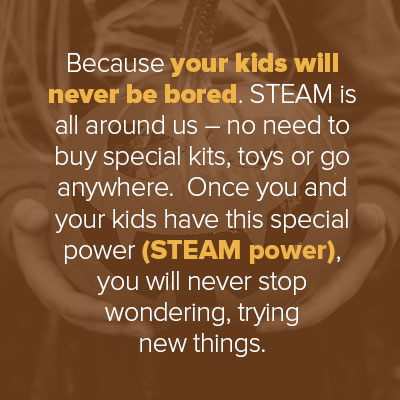This fall I have been thinking and reading a lot about failure. At Let Me Run practice last night we were talking with 5th and 6th grader boys about failure. Our words to live by were “failure is only failure if you fail to try again.” Each boy shared a time in their life that they failed, and then kept trying. We reflected on the season and how many of the boys couldn’t run continuously for a mile at the beginning of the season and tonight all but one of them ran a 5 K. We talked about how we can grow from failure, and the statement, “Fall down seven times get up eight.” As our conversation evolved at the end of practice, we talked about how we didn’t like the statement “Failure is not an option” This quote is often attributed to Gene Kranz (foreground, back to camera), an Apollo 13 Flight Director.
https://www.nasa.gov/multimedia/imagegallery/image_feature_2073.html

Many of the boys were uneasy with the quote. We fail all the time. What do you mean failure is not an option. If Apollo 13 mission’s success was determined by exploring a crater on the moon, then the mission failed. But if the eventual success of the mission was not giving up on the three Astronauts caught in space then the mission was a huge success. Failure is an option, it is essential to eventual success if you don’t let it define you.
We need to embrace failure as a crucial element of learning. The CEO of the KIPP organization interviewed by the New York Times shares, “Learning from failure leads to humility, adaptation, and resiliency; unfortunately, most students are taught to fear failure from a young age. To combat this trend, educators can emphasize having a growth mindset, encourage learning from past failures, and ask students to reflect regularly on, rather than ruminate over, failures.”
I recently read an article that I shared with the teachers at the STEM Academy, and on twitter. The article was entitled, “Forget The 10,000-Hour Rule; Edison, Bezos, & Zuckerberg Follow The 10,000-Experiment Rule” This article outlines the importance of experimentation, in success in life, and in business. “Deliberate experimentation is more important than deliberate practice in a rapidly changing world.” The same is true of growing up and education. When things don’t go as planned, great! What have we learned, how can we do things differently? Embracing failure as part of growing up, learning, and growing is a key to achieving at a high level. One of the boys in Let Me Run chose a mantra, "I can, I am, I will" and he said this as he ran his 5K last spring. This experience has stuck with me. When I completed my first 1/2 ironman, traveling 70.3 miles of swimming, biking and running, this summer I would say these words to myself. I wanted to complete the event, I wanted to also do it in less than 6 hours. 6 hours and 9 minutes later I crossed the finish line.

Reading Rocks and 21 Day STEAM Challenge.
The STEM Academy is in the middle of our annual read-a-thon fundraiser. Students are reading on the weekend, and at recess to raise money for our natural playground that is sponsored by the parent teacher group. Thank you parent teacher group (PTG) for sponsoring the event, and supporting our school, teachers and students!
I am participating in the 21 day STEAM challenge with my family, and I want to encourage you to do the same. You can sign up for the challenge @ https://www.21daysteam.com/ It’s a great way of looking at the world and it’s also a set of building blocks for innovation and let’s not forget it’s a lot of fun! Why should you make sure that your family or your students have a healthy STEAM diet in their daily life?
  
Engagement in school and academic success is a partnership between the family and the school. At the STEM Academy we work hard to inspire students to love learning, and also exemplify that having grit and a growth mindset are as important as getting A’s and B’s or high test scores on standardized exams. You can support this with the STEAM challenge, and by participating in the read-a-thon with your child or teenager.
The parent teacher group meets the second Wednesday of every month in the STEM Lab and all are welcome. The next meeting is November 8th and you can like them on facebook @ www.facebook.com/comstock.STEM.PTG Last summer volunteers from the PTG constructed an outdoor classroom, a ¼ mile jogging and walking trail, and two gaga pits. If your child is gaga for gaga and you are wondering what is this all about watch this ABC story about gaga ball.
A common image when thinking about optimism is the glass half full. The chemist would say the glass is full, ½ liquid and ½ gas. This image doesn’t fully capture what optimism is, how it is learned, and how it can be used to improve your life. To do this we need to look at research, Disney movies, and anecdotes from prisoners of war.
Martini E. P. Seligman professor of psychology at the University of Pennsylvania is one of the leading authorities on learned helplessness and its relation to optimism and hope. Here is a 23 minute video on the new era of positive psychology.
www.characterlab.org talks about optimism as a strength of will. “Optimism is being hopeful about future outcomes combined with the agency to shape that future.” It is important to see this definition in two parts. Hope for the future, and the agency to shape the future. Looking at optimism with a growth mindset recognizes that bad things happen, but they are often temporary and how can I change my situation through new efforts or strategies? There is a genetic component to optimism, but genes are not destiny. “This isn’t your traditional “glass half full” optimism (which some might call blind positivity) because optimistic people seek to directly connect their own power and actions to the future they want. For example, after getting a bad grade on an exam, an optimistic student believes that studying harder or differently will earn her a better grade on the next one. Another critical part of optimism is not “catastrophizing” a situation. For example, when a friend doesn't want to play that day, the optimistic kid imagines that his friend is having a bad day, not that no one wants to be his friend.” https://characterlab.org/tools/optimism
Growing up I loved the Disney movie Pollyanna. This 1960’s movie about an excessively cheerful and optimistic orphan Pollyanna, both made me smile, and scratch my head.
The glad game was cute, as was the scene where the Pollyanna is excited to get a Christmas gift only to discover that in the gift is an old pair of crutches. She initially looks understandably disappointed but then exclaims, “At least I don’t have to use them. Pollyanna’s name has morphed into a noun to describe an excessively or blindly optimistic person, and Pollyannaish adjective; unreasonably or illogically optimistic. Pollyanna misses the point of what true optimism is. It is natural to get upset when bad things happen. We shouldn’t respond with blind optimism as Pollyanna does, but must exercise our agency to shape the future for the better through new efforts and strategies. We must realize that, with a growth mindset our current situation is not set in stone, written in our genes, and outside our control, but we can influence our circumstances for the better.
Our third example comes from a prisoner of war the late Vice Admiral James Stockdale. He was the highest ranking naval officer to be held prisoner during the Vietnam War. Jim Collins writes about the Stockdale Paradox in his book Good to Great, “The Stockdale Paradox is named after admiral Jim Stockdale, who was a United States military officer held captive for eight years during the Vietnam War. Stockdale was tortured more than twenty times by his captors, and never had much reason to believe he would survive the prison camp and someday get to see his wife again. And yet, as Stockdale told Collins, he never lost faith during his ordeal: “I never doubted not only that I would get out, but also that I would prevail in the end and turn the experience into the defining event of my life, which, in retrospect, I would not trade.”
Then comes the paradox: While Stockdale had remarkable faith in the unknowable; he noted that it was always the most optimistic of his prison mates who failed to make it out of there alive. “They were the ones who said, ‘We’re going to be out by Christmas.’ And Christmas would come, and Christmas would go. Then they’d say, ‘We’re going to be out by Easter.’ And Easter would come, and Easter would go. And then Thanksgiving, and then it would be Christmas again. And they died of a broken heart.”
What the optimists failed to do was confront the reality of their situation. They preferred the ostrich approach, sticking their heads in the sand and hoping for the difficulties to go away. That self-delusion might have made it easier on them in the short-term, but when they were eventually forced to face reality, it had become too much and they couldn’t handle it.
Stockdale approached adversity with a very different mindset. He accepted the reality of his situation. He knew he was in hell, but, rather than bury his head in the sand, he stepped up and did everything he could to lift the morale and prolong the lives of his fellow prisoners. He created a tapping code so they could communicate with each other. He developed a milestone system that helped them deal with torture. And he sent intelligence information to his wife, hidden in the seemingly innocent letters he wrote.
Collins and his team observed a similar mindset in the good-to-great companies. They labeled it the Stockdale Paradox and described it like so:
You must retain faith that you will prevail in the end, regardless of the difficulties.
AND at the same time…
You must confront the most brutal facts of your current reality, whatever they might be.
For me, the Stockdale Paradox carries an important lesson in personal development, a lesson in faith and honesty: Never doubt that you can achieve your goals, no matter how lofty they may be and no matter how many critics and naysayers you may have. But at the same time, always take honest stock of your current situation. Don’t lie to yourself for fear of short-term embarrassment or discomfort, because such deception will only come back to defeat you in the end.”
Here is an article from Harvard Ed. Magazine. It resonates with me as I have meetings with parents who say my child is bored... and I reply as my mom used to reply to me if I ever dared to say that forbidden 5 letter word, boredom is a personal problem, go out and play, climb a tree, read a book, catch frogs in the creek.

As I walk around the STEM Academy, most days I see engagement, excitement, and challenge. Lets continue to put the responsibility for learning to students, the responsibility for engagement to students, but lets also strive to show them how the work we engage in is relevant. Encourage your kids, preteens and teens to rise to the challenge. Work hard even when you don't feel like it. Feel the sense of satisfaction that comes from doing the right thing when no one is watching. Reading this article helped me add tools to my education tool belt to support teachers, students and parents.
From the article “We have to stop seeing boredom as a frilly side effect. It is a central issue. Engagement is a precondition for learning,” he adds. “No learning happens until students agree to become engaged with the material.”
"“If you see human potential as a bell curve and there are only some kids who are going to be great and most kids are mediocre, then engagement really wouldn’t matter,” Rose says. “But if you really believe that all kids are capable, then you would build environments that really worked hard to sustain engagement and nurture potential.”
"Rose adds that high schools rarely take advantage of an adolescent’s cognitive development. Teenagers “take on identities; they’re more socially oriented. This is the first time when abstract ideas can be motivating. They become more politically engaged and think about things like justice. Yet we’re still keeping them in the kind of education system... that wants nothing from them in terms of their own ideas. School has already decided what matters and [what it] expects from you. It’s like an airplane: Sit down, strap in, don’t talk, look forward. Why would it be meaningful?”
The beauty of relevance, Rose says, “is that it’s free. If you’re an educator or curriculum developer, and you saw your responsibility to ensure every kid knew why they were doing what they were doing, you can do that tomorrow.”
"But the biggest shift we need,” Rose believes, is much more elemental. “We need to get away from thinking that the opposite of ‘bored’ is ‘entertained.’ It’s ‘engaged.’” It’s not about pumping cartoons and virtual reality games into the classroom, it’s about finding ways to make curriculum more resonant, personalized, and meaningful for every student. “Engagement is very meaningful at a neurological level, at a learning level, and a behavioral level. When kids are engaged, life is so much easier.”
Ms. Anderson the 2nd grade teacher at the STEM Academy shares this video with her students.
I'm encouraged and excited to lead a building that values engagement, and works to meet the needs of ALL students. What are ways you battle boredom? How do you encourage your child or student to stay engaged?
-Mr. Chopp
December is a great month to talk with your family about self-control.

I’m not just referring to resisting the urge to keep eating holiday sweets, or the desire of little kids to create long lists for of wants, but also to reflect on how to develop self-control. This character trait is both strength of heart, and strength of mind. Character lab defines self-control as controlling one's own responses so they align with short- and long-term goals. Self-control predicts academic, personal, health, and economic outcomes. The famous “marshmallow experiment” showed that preschool students who demonstrated more self-control had better academic and social outcomes decades later—including less drug use and higher SAT scores—than did those who demonstrated less self-control as young children. Check out the link to see some examples of observing self-control, an evidenced based tool for developing self-control called WOOP, which stands for Wish, Outcome, Obstacle, and Plan. Also there are two short videos about what the research says about self-control.
Dr. Walter Mischel talks about Self-Control from Character Lab on Vimeo.
Dr. Ethan Kross, Assistant Professor of Psychology at the University of Michigan, talks about Self-Control from Character Lab on Vimeo.
On a personal note I am working on exercising self-control as I train for the steelhead ½ ironman in Benton Harbor, Michigan on August 13th. I’ve never done this distance of triathlon (70.3 miles) I will be working on exercising self-control as I resist the snooze button, and stick to my training plan the next 9 months.
- Mr. Chopp
In the first week of October I am asking that you watch, “The Adaptable Mind.” This short video explores the skills we need to flourish in the 21st Century. The film begins with a question to the world through social media: what’s a great example of a 21st century mind in action?
Of the hundreds of inspiring stories that flooded in, one stood out: Los Angeles-based professor and artist, Mary Beth Heffernan, was listening to coverage of the Ebola epidemic in West Africa and how isolating and traumatic it must be for patients to interact only with hazmat suits for weeks on end. She thought, “what if they put pictures of their faces on the front of the suits?” Thousands of letters, grants, and hurdles later, Mary Beth’s story reveals that, while there is a lot of fear that technology is displacing our jobs, the skills we need most in the 21st Century — curiosity, creativity, taking initiative, multi-disciplinary thinking, and empathy — happen to be skills that machines don’t have; only humans have.
Share your thoughts on our FaceBook page or in the comments section below!
This month our family focus is on having a growth mindset. Having a growth mindset means understanding that intelligence can be developed. Find out why telling your student, “You’re so smart,” may backfire by watching the video below.
A growth mindset is critical to school success and linked with grit. Research shows that a growth mindset predicts increased academic achievement and can help narrow gaps (e.g., racial achievement gaps, gender gaps) that may be seen otherwise. Post your thoughts on the STEM Facebook page!
|